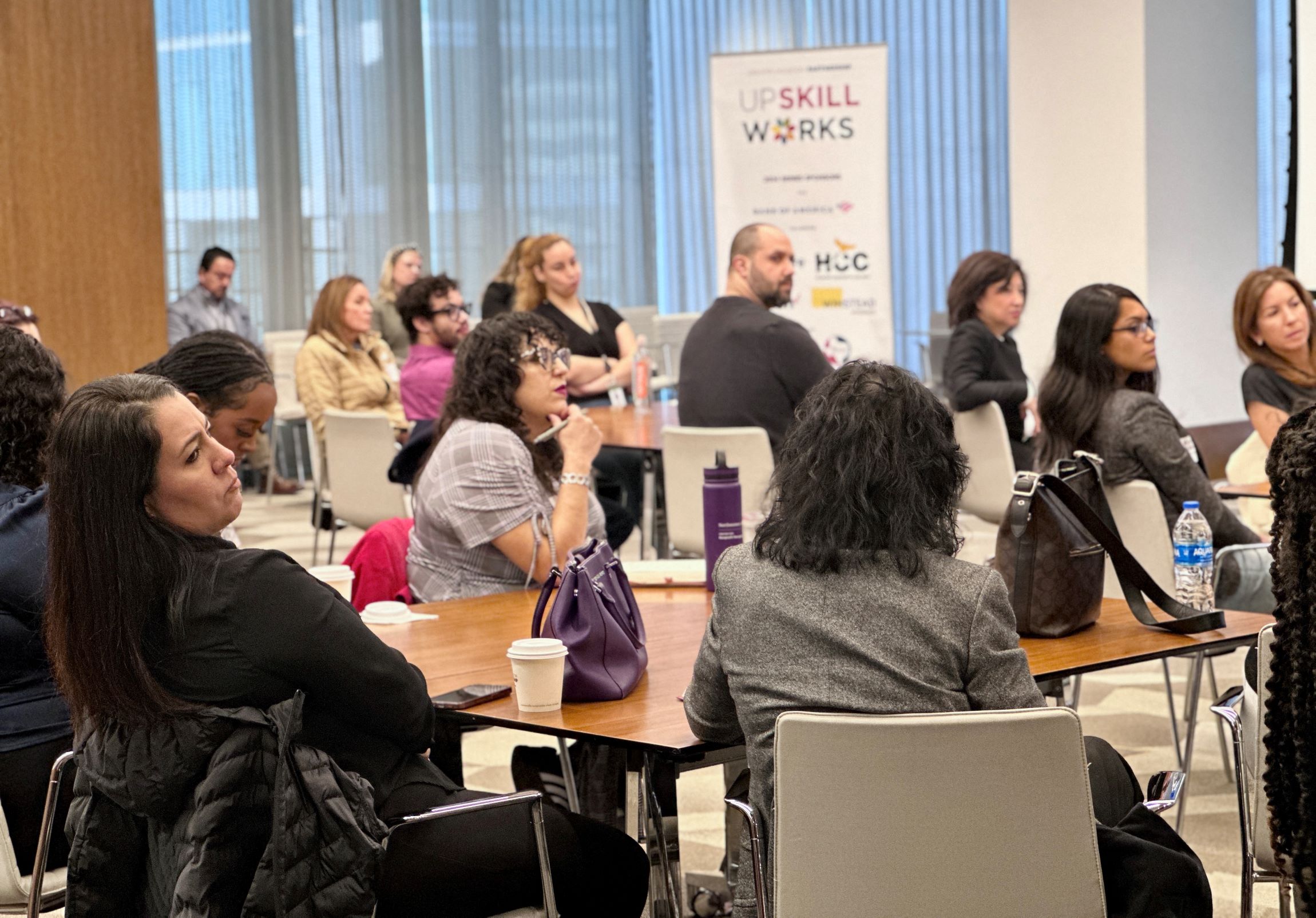Talent and Skills First in Greater Houston
Published Nov 26, 2024 by Peter Beard
A letter from Peter Beard, Sr. Vice President, Regional Workforce Development.
Houston’s talent and human capital, whether it's cultivated and developed here at home or attracted from other regions, is the backbone, brainpower, innovation, and energy that powers our diverse economy. So, as UpSkill Houston looks to its next five to ten years, Greater Houston is poised to significantly move a talent and skills first approach that increases mobility and opportunity for the region’s residents and strengthens the region’s economy. At the end of the day, our work is a marathon which can improve the resilience of Houston and its residents.
UpSkill Houston, with more than a decade of collaborative work, demonstrates strong and effective employer, education and community partnerships focused on creating results and improving student and adult learner outcomes and opportunities. By celebrating individual achievements, we inspire others to emulate success. This collective approach drives systemic change, enabling transformative impact on scale.
The leaders and organizations that are part of UpSkill Houston’s collective table have built a strong -foundation —a “good start”—and have propelled us in the “right direction” However, there is much “more to do” in order to fulfill the mission: ensuring the Houston and Gulf Coast region has one of the finest skilled workforces in the world while providing opportunity and mobility for the residents of the region. As regional economies continue their transition from industrial economies to knowledge-based and digital and technology enabled ones, the skills individuals will need to succeed in their occupations will continue to evolve at an increasing pace.
At the same time, every individual will need to be equipped with a core set of foundational and essential skills to succeed in life, work and education. We are hearing from employers in Houston that individuals being work-ready requires they have skills such as problem-solving, critical thinking, time management, communications, continuous learning, grit and persistence, digital literacy, teamwork and collaboration, ability to learn, etc. While this is a substantial list many of these skills are developed and refined over time and with practice by applying them at home, on the playground, in school, on the playing field, and in so many other places.
Whether it is the artificial heart or cancer cures, new energy technologies like CCS, or putting a man on the moon, Houston innovates on some of the world’s most challenging problems. On this most fundamental and existential challenge of Talent and Skills First, we will need to develop new partnerships and efforts to ensure that young people attending our schools can enter the workforce with a good job and adult learners, in collaboration with community and education partners, develop new skills to get amazing career opportunities.
We have several outstanding examples of effective practices including but not limited to, Genesys Works, Junior Achievement’s 3DE, the Industrial Craft Competition at the Houston Livestock Show and Rodeo. UpSkill Houston’s opportunity is to leverage its employer-led approach to build new partnerships with education and community partners, and together we can reach back into the early grades and support young people as they progress through the K-12 system and enter the post-secondary system or the workforce. Our goal is to scale these efforts across the region, creating meaningful impact for generations to come.
Are you ready to be part of this transformative journey? Join us in shaping the future!
 The Houston Report
The Houston Report




















